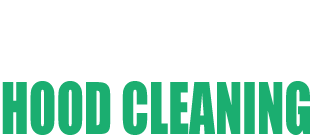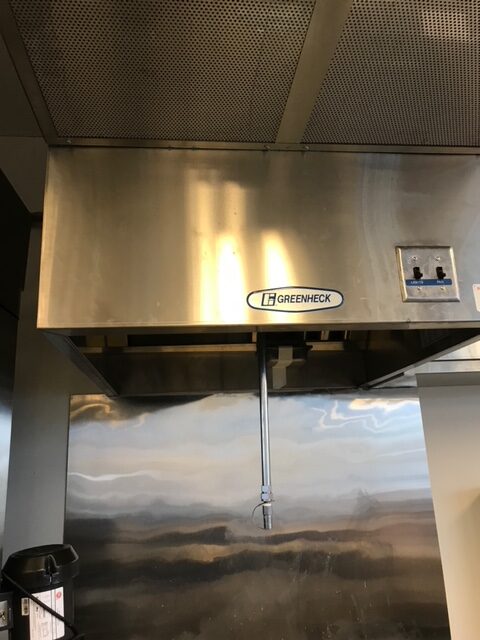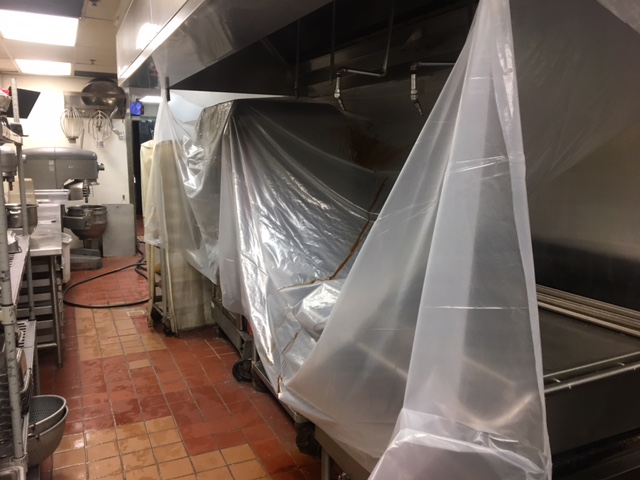From Guidelines to Best Practices: Demystifying Compliance and Safety for Hood Cleaning in San Jose Restaurants
When running a restaurant in San Jose, safety should always come first. One important yet often unnoticed factor of hood cleaning should not go overlooked: proper hood cleaning ensures not only cleanliness but also ensures the safety of both staff and customers. We will explore best practices for hood cleaning at San Jose restaurants; by following them we will help to ensure compliance with regulations while creating a safer environment.
Hood cleaning is an integral component of keeping kitchen exhaust systems free from contaminants such as grease, grime and smoke odor. Proper hood maintenance helps prevent fire hazards while improving air quality and complying with local health regulations. Let’s explore what guidelines and best practices San Jose restaurants should follow when it comes to hood maintenance.
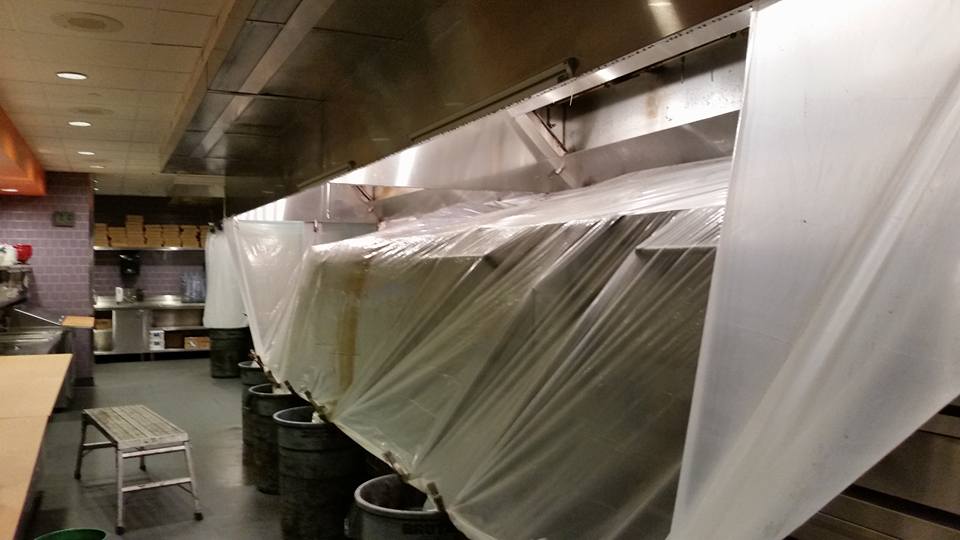
Before diving into hood cleaning in San Jose, it’s essential to familiarize yourself with local regulations and codes. Both the San Jose Fire Department and Santa Clara County Environmental Health Department provide specific guidelines that restaurants must abide by regarding frequency of cleanings, certification of technicians and safety protocols. By understanding and complying with these regulations, penalties can be avoided while simultaneously creating a safer working environment.
Hiring Certified Hood Cleaning Professionals
Proper hood cleaning requires expertise and knowledge of industry standards. Therefore, it’s vital that you hire certified hood cleaning professionals trained to carry out this task efficiently and safely. When searching for professionals to hire for this task, look for certification from reputable organizations such as International Kitchen Exhaust Cleaning Association (IKECA) or National Fire Protection Association (NFPA). A certified professional will not only clean your hood efficiently but will also provide documentation of its cleanliness for compliance purposes.
Establish a Cleaning Schedule
Regular cleaning is key to maintaining compliance and safety in any kitchen environment, and adhering to a cleaning schedule will help your restaurant be clean and safe. Consulting local regulatory authorities’ guidelines regarding appropriate frequency can assist in creating an enjoyable kitchen environment.
Cleaning Hoods Hood cleaning involves working with hazardous chemicals and equipment that must be handled carefully in order to remain safe for you, your staff, and customers. Therefore, it is vital that safe cleaning practices be implemented so as to safeguard everyone involved – these include…
Always wear appropriate personal protective equipment (PPE), such as gloves, goggles, and aprons when cleaning, using only nontoxic cleaning solutions according to manufacturer instructions and ensuring adequate ventilation during the process to avoid an accumulation of fumes.
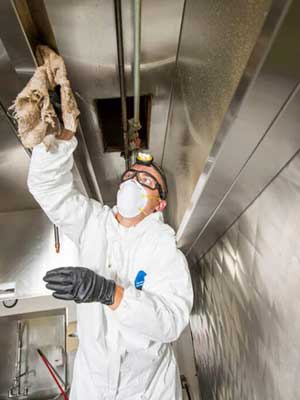
Fire extinguishers must always be easily accessible in case of emergencies, to minimize risks and ensure a safe working environment. By adhering to such practices, accidents can be reduced significantly and work environments created that promote wellbeing.
Inspection and Maintenance
Regular inspection and maintenance activities are an essential component of hood cleaning efforts. Thoroughly examine your kitchen exhaust system – including its hood, filters, ductwork and fans – for any signs of damage or excessive grease buildup. Keep a log of these activities as proof of compliance; address any issues quickly with qualified professionals providing repairs as soon as necessary.
Training and Education
Staff education and training is vital to ensure compliance and safety when it comes to hood cleaning. Make sure your employees understand the significance, safe practices, emergency procedures and potential risks of neglected hood cleaning; create an awareness about it among employees to increase responsibility within your restaurant environment. By including employees in this process you create a culture of safety and responsibility within your restaurant environment. Please see frequently Asked Questions (FAQs).
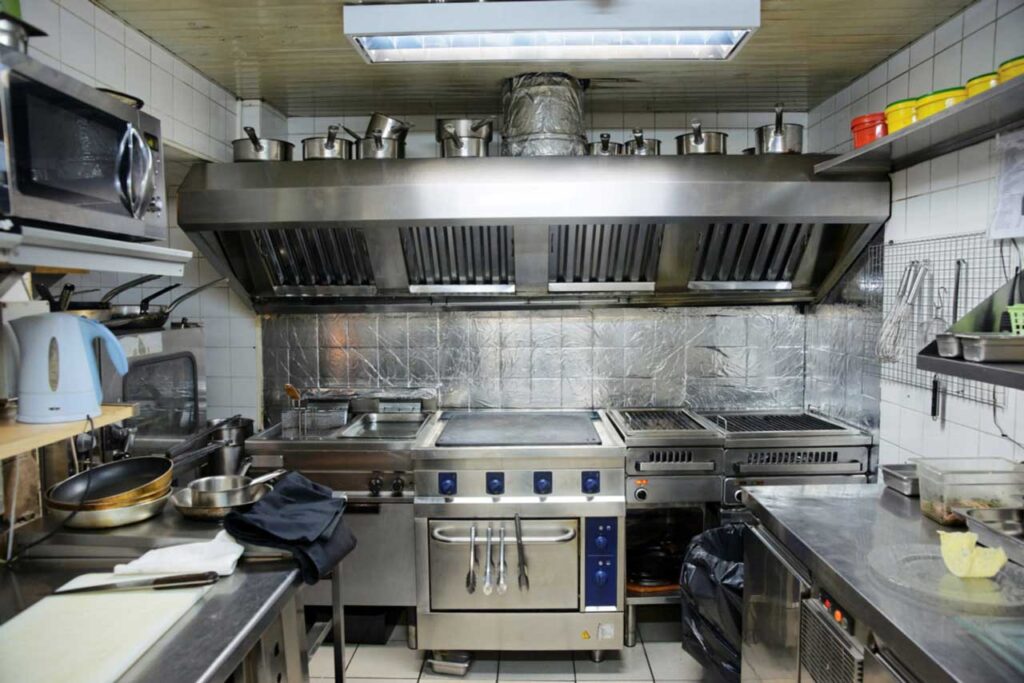
Q: How often should I clean my restaurant’s hood?
A: It depends on several factors, including cooking volume and type. Consult local regulatory guidelines to establish an ideal cleaning frequency for your establishment.
Q: Should I clean my hood myself or hire professionals?
A: While DIY hood cleaning might seem attractive in terms of cost savings, certified hood cleaning professionals have all of the expertise, equipment and knowledge of industry standards required for effective hood cleaning that ensures compliance.
Q: What are the consequences of not complying with hood cleaning regulations?
A: Failure to abide by these rules could result in penalties, fines or even closure of your restaurant, as well as pose an extreme fire hazard and threaten both staff and customer safety.
Q: Where can I locate certified hood cleaning professionals in San Jose?
A: You can search online directories or contact organizations such as IKECA and NFPA for recommendations of certified professionals who meet all necessary certifications and experience requirements.
Q: What should I do if I detect excessive grease buildup in my hood?
A: Grease buildup in your hood poses a fire hazard, so if you detect such buildup it is critical that you contact a certified hood cleaning professional immediately for removal; do not attempt cleaning on your own as this requires special tools and expertise.
Q: Should I use any cleaning agents for my hood cleaning?
A: No, for optimal hood cleaning results it is essential that specific cleaners be utilized. Always consult professionals or manufacturer recommendations regarding which are safe and effective cleaning agents to use.
Compliance and safety in hood cleaning are of utmost importance for San Jose restaurants. By following the guidelines and best practices detailed here, you can create a clean and safe kitchen environment, reduce fire risks, comply with local regulations, hire certified professionals for their expertise, create a cleaning schedule that incorporates safe methods for cleaning hoods regularly as well as conduct regular inspections of your facility – prioritizing hood cleaning will not only protect your restaurant but also create an exceptional dining experience for customers.
